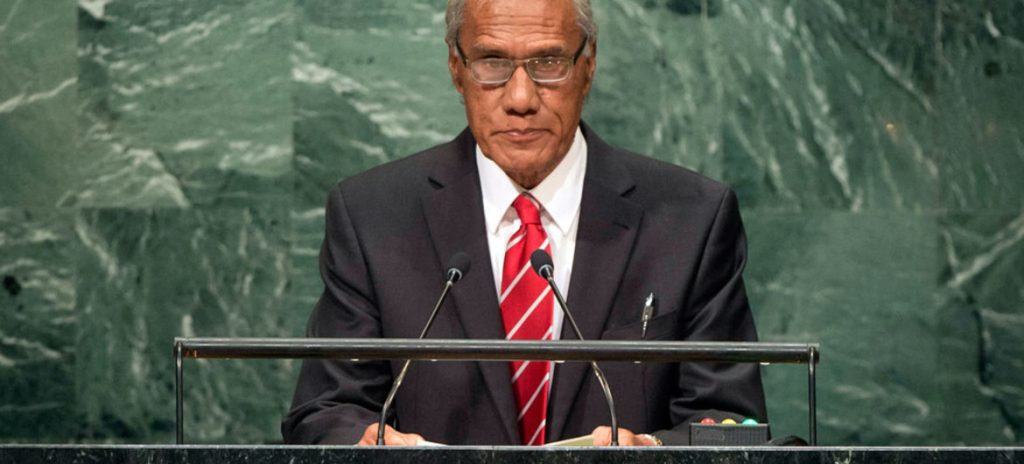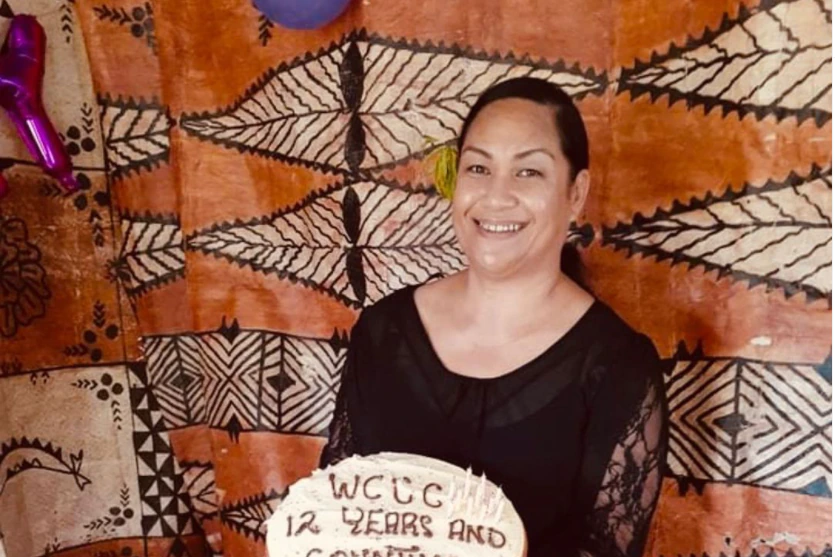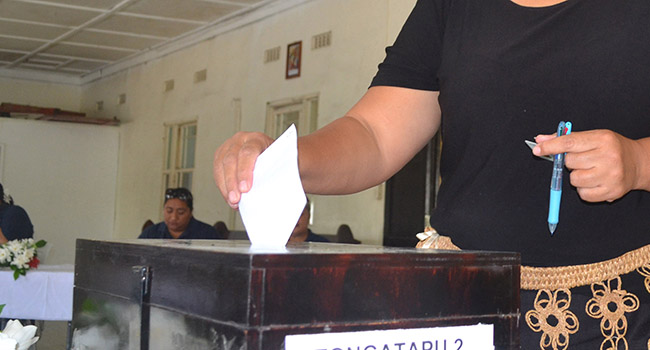While climate change and COVID-19 have dominated the news cycle, Tonga’s battle with corruption and drug use are also front of mind for the kingdom’s voters as they head to the polls.
Tonga is a constitutional monarchy and this is just the fourth election since its political system underwent major reforms in 2010.
The former king relinquished many of his powers, enabling voters to elect the majority of MPs.
Today approximately 64,000 eligible voters will have their say by electing 17 members of parliament, or the commoners as they are known in the kingdom.
The other nine seats in the Fale Alea (Legislative Assembly) go to nobles, who are still chosen by their peers rather than the people.
Pacific political commentator Associate Professor Malakai Koloamatangi said this election had particular significance as it was the first since the death of former prime minister ʻAkilisi Pōhiva, who died in 2019.

“This is the first election since 1987 that the veteran pro-democracy campaigner, the late ʻAkilisi Pōhiva, the former prime minister, is not a part of,” Associate Professor Koloamatangi said.
Prime Minister Pohiva Tuʻiʻonetoa was elected soon after Pohiva’s death.
Additionally, pandemic-related border closures mean thousands of Tongans either stuck or working overseas, will not be able to cast their vote, including an estimated 5,000 Tongan citizens in Australia.
Samuela Halahala from the Tonga National Youth Congress believes for those who can get to a ballot box, the key issue for most voters will be the drugs crisis that Tonga is struggling to cope with.
“It’s taking everyone by surprise,” Halahala said.
“Tonga is not used to this stuff and the change that comes with it; it’s just overwhelming for everyone.”
Tonga is no longer just a transit point for drug smugglers taking their product from South America to large markets in Australia and New Zealand — the kingdom has seen a dramatic rise in the use of illicit drugs including cocaine and methamphetamine
“We visit a lot of communities … here in Tonga, all around the other islands, and we’ve seen the problems.”
Halahala said a higher number of students dropped out of school this year than the past three years and that substance abuse was one of the main factors.

Director of Tonga’s Women and Children Crisis Centre (WCCC) Ofa Gutenbeil Likiliki agrees the country is at crisis point, with the situation worsening significantly in the past five years, since Tonga’s last election.
“What the crisis centre is trying to do [is to] get decision-makers and key stakeholders to understand the strong link between the drug impact on gender-based violence and … all forms of violence against women and children,” Gutenbeil Likiliki said.
“Because right now, there’s a disconnect, thinking that they are two separate issues.
“All our issues are interconnected, we can’t just deal with one as an isolated issue, we have to kind of address all our issues together, because it impacts on each other.”
With a population of just 100,000, Gutenbeil Likiliki and Halahala believe fixing the country’s drug problem is possible, but Associate Professor Koloamatangi said it was only possible through help from wealthier neighbours.
“It’s difficult because the problem is not created in Tonga and the reason for the [drug] trade is also not found in Tonga specifically,” Associate Professor Koloamatangi said.
“So other nations will have to come to the party for Tonga to be able to resolve this issue.”
Anti-corruption organisation Transparency International surveyed 6,000 adults from across Pacific Islands and found 61 per cent thought corruption was a significant problem in their government.
Mapa Taumololo, an independent candidate running in today’s election, said Tonga was no exception.
“That’s the major issue I’ve heard from the communities,” Taumololo said.
“They really want leaders to fight against corruption.”
At 33, he is one of the youngest in the field of 73 candidates in the running for one of the 17 seats.
Taumololo previously worked in the public service, but now he wants to try and create change from within the government.
“I realised there’s lots of loopholes in the system, and also the parliamentary procedures,” he said.
In July, a government minister and her husband were jailed for misappropriating money from a vocational education programme that had received Australian government funding.
While in March 2020, former prime minister Lord Tu’ivakan was found guilty over his role in a passports-for-sale scandal involving Chinese nationals.
Taumololo believes voters in his constituency have had enough of poor behaviour.
“They are very supportive of trying to establish the anti-corruption commission to fight against corruption in Tonga,” he said.
Tonga recorded its first case of COVID-19 in October this year after a case was detected in a traveller from New Zealand.
According to the World Health Organisation, it remains Tonga’s only case to date.
Associate Professor Koloamatangi said, like elsewhere in the world, today’s elections will be “a COVID-19 election”
“That means a lot will depend on what the government has done in managing the pandemic and keeping the country safe in terms of border closures and lockdowns.”
ButTaumololo said voters will also be looking ahead to how a new government handles COVID-19 and how it might reopen Tonga’s border.
“They’re concerned that the Ministry of Health does not have the capacity … to cater for, I think, more than 15 or 16 [active] cases,” he said.
“We are at risk, the whole of our communities, because we’re not ready, facility-wise and capacity-wise.”
Associate Professor Koloamatangi said as the world moves to living with COVID, international aid from countries like Australia will be vital in Tonga’s reopening and management of the disease.
Currently, Losaline Ma’asi is the only female MP in Tonga and of the 73 candidates running in the election, just 12 are women.
“We’re still struggling to get more women into parliament, even though we’ve had some constitutional and legislative reforms.
“That’s connected back to … our cultural and our traditional and religious kind of thinking that the biggest decision making positions should be reserved for men.
“And so to change that it will mean a generational kind of investment,” she said.
SOURCE: ABC














